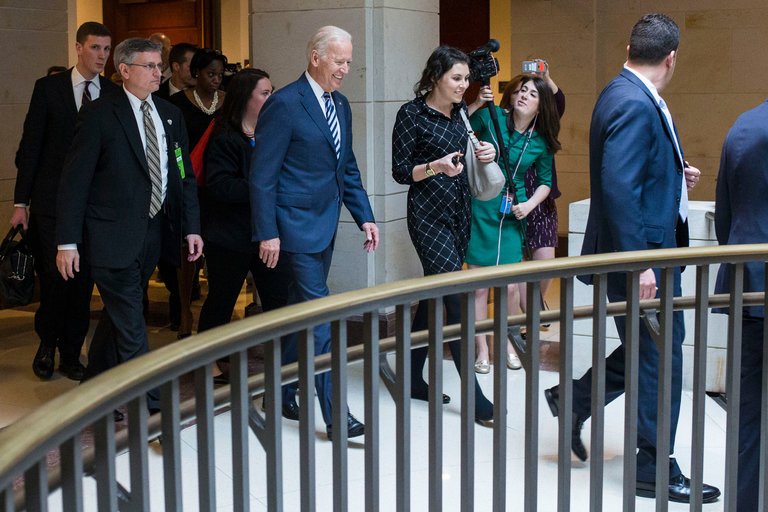
WASHINGTON — The Senate approved complex health care legislation on Wednesday that would increase funding for disease research, address weaknesses in the nation’s mental health systems and vastly alter the regulatory system for drugs and medical devices. The vote sealed a final legislative victory for President Obama, who strongly supported the bill against objections from many liberal Democrats and consumer groups.
In many ways the bill, known as the 21st Century Cures Act, is a return to a more classic approach to legislation, with policy victories and some disappointments for both parties, and potential benefits for nearly every American whose life has been touched by illness, drug addiction and mental health issues. Years in the making, the measure passed 94 to 5 after being overwhelmingly approved by the House last week.
One major winner — and a donor to both parties — was the pharmaceutical industry; its role set off fierce but futile opposition by Senator Elizabeth Warren, Democrat of Massachusetts. On many of the areas addressed by the bill, pharmaceutical companies were in step with the interests of patients desperate for cures, an unusual and emotionally charged alliance between an industry and its consumers.
The measure would benefit people with mental illness and chronic diseases, biomedical researchers, pregnant women, hospitals, children with diabetes, people addicted to opioid drugs, children who are bullied, and those who are gravely ill.
“I doubt that there is a family in America who will not be touched by this important legislation,” said Senator Susan Collins, Republican of Maine.
Mr. Obama has noted that the bill includes money to combat the opioid epidemic, to advance his Precision Medicine Initiative, which aims to collect genetic data on one million American volunteers so scientists can develop treatments, and to support Vice President Joseph R. Biden Jr.’s “moonshot” to cure cancer. Mr. Biden — whose son, Beau, died of a brain tumor last year — presided on a procedural vote to move the bill forward in the Senate Monday night, a moving moment for most members of the Senate.
While Republicans and Democrats often fight over government spending, the bill benefited from its largess to one agency that has broad support, the National Institutes of Health.
“I don’t think there is enough money that we can put into the N.I.H.,” said Representative Steve Cohen, Democrat of Tennessee, “because it is important and it affects all Americans independent of political party, race, sexual orientation — you name it.”
The bill gives the health institutes the authority to finance high-risk, high-reward research using special procurement procedures, as opposed to more conventional grants and contracts. It also requires the agency’s director to establish “Eureka prize” competitions to advance biomedical research and improve treatments for serious illnesses.
The bill raises the status of mental health issues by creating a new assistant secretary for mental health and substance use, to be appointed by the president.
It directs federal agencies to step up enforcement of laws that require equal insurance coverage for mental and physical illnesses. Federal laws and rules requiring mental health parity have been adopted with bipartisan support over the last 20 years, but a White House task force found recently that compliance was lagging.
“We didn’t get everything we needed,’” said Representative Tim Murphy, Republican of Pennsylvania, the architect of provisions to improve the treatment of mental illness, “but we needed everything we got.”
Major provisions of the bill push the Food and Drug Administration to speed the review and approval of drugs and medical devices. Kim Monk of Capital Alpha Partners, a policy research firm for investors, described the bill as “a holiday win for much of the health sector.”
Scott Whitaker, president and chief executive of the Advanced Medical Technology Association, a trade group for device makers, hailed the bill for creating “an expedited pathway for breakthrough medical technologies – those that offer the best hope for patients with life-threatening diseases” and few treatment options. In reviewing new devices, the bill says, the F.D.A. shall consider the “least burdensome” means of showing their safety.
In considering whether to approve new drugs or new uses for medications, the bill says, the F.D.A. shall pay more attention to “patient experience data” showing the impact of a disease or treatment on patients’ lives, and their treatment preferences.
The legislation does not include provisions to to rein in prescription drug prices, a significant victory for the pharmaceutical industry. Consultants to the industry said that drug makers had kept a low profile in their lobbying on the legislation, knowing that any conversations on Capitol Hill could turn quickly to drug prices.
“When the cost of our prescription drugs is skyrocketing, this bill does nothing to combat excessive prices,” said Representative Rosa DeLauro of Connecticut, the senior Democrat on the Appropriations subcommittee on health and human services. She who voted against the measure.
“While the bill authorizes $4.8 billion to the N.I.H. over the next 10 years — on average, a mere $480 million a year — this is barely a quarter per year of what the House passed last year,” Ms. DeLauro said. “There is also no guarantee that the appropriators will follow through and provide funding each year.”
Representative Kathy Castor, Democrat of Florida, who voted for the bill, said she too wished that more of the money had been guaranteed. “Medical research in America today should not be subject to the whims of congressional budget battles or political fights,” she said.
[Source:-New Yourk Times]








